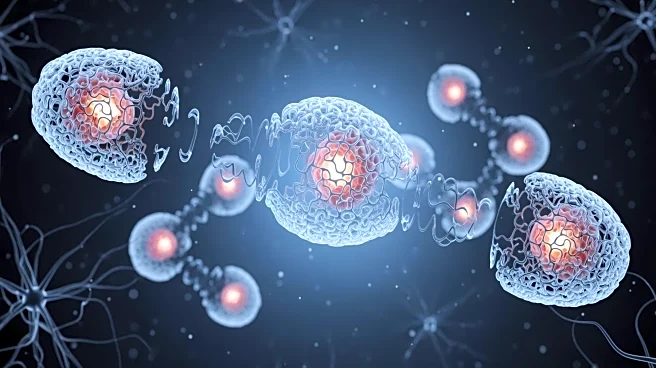What's Happening?
Recent research has revealed that surgically severing part of the brain can induce a deep sleep-like state in the disconnected region, even when the individual is awake. This study, published in PLoS Biology,
focused on children with severe epilepsy who underwent a hemispherotomy—a surgical procedure that disconnects the seizure-originating part of the brain from the rest. The disconnected tissue remains in the skull with an intact blood supply. Researchers aimed to understand whether this isolated brain region retains any form of awareness or consciousness. The study involved analyzing electroencephalograms (EEGs) from ten children before and after the surgery, comparing them with EEGs from children with typical brain activity. Findings showed that the disconnected region exhibited slow rhythms known as delta waves, akin to those seen in deep sleep, persisting for months or years post-surgery.
Why It's Important?
This discovery is significant as it enhances the understanding of conscious and unconscious brain states, particularly in the context of severe epilepsy treatment. The persistence of slow wave patterns in disconnected brain regions raises questions about their function, potentially indicating protective mechanisms or aiding in brain adaptation post-injury. This research could influence future therapeutic strategies for neurological conditions, offering insights into brain resilience and recovery processes. Understanding these patterns may also contribute to broader discussions on consciousness and brain activity, impacting neuroscience and medical practices.
What's Next?
Further research is needed to explore the implications of these findings, particularly the role of slow wave patterns in brain protection and adaptation. Scientists may investigate whether similar patterns occur in other neurological conditions, such as stroke or traumatic brain injury, and their potential therapeutic benefits. Additionally, the study could prompt discussions on refining surgical techniques for epilepsy and other brain disorders, aiming to optimize patient outcomes while preserving brain function.
Beyond the Headlines
The study touches on broader ethical and philosophical questions regarding consciousness and brain function. As researchers delve deeper into understanding brain states, debates may arise about the nature of consciousness and its measurement. This could lead to advancements in neuroscience, challenging existing paradigms and potentially reshaping approaches to brain health and treatment.









